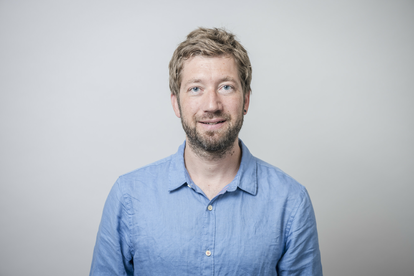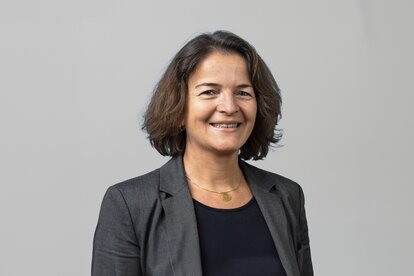The World Climate Change Conference will take place in Dubai in December. Progress in supporting "climate adaptation" and "loss and damage" in poorer countries is urgently needed to regain lost trust in industrialized countries. This trust is necessary for poorer countries to accommodate the rest of the world on other issues such as renewable energies and sustainable climate protection.
According to the United Nations, all key climate indicators are pointing in the wrong direction. Parts of South America experienced unusually hot temperatures in August. The combination of climate change and El Niño led to unprecedented winter heat. Extreme weather events are wreaking havoc across the continent and causing billions in damage. South Asia has also been hit hard: The flood disaster of historic proportions in Pakistan in the summer of 2022 has not been forgotten. 33 million people were affected — with damage amounting to over $30 billion.
And finally, on the African continent Libya experienced a heavy rain disaster this year. Over 11,000 people lost their lives and at least 35,000 lost their homes. Meanwhile, eastern Africa is headed for its sixth failed rainy season in a row. The drought is more dramatic than it has been for 40 years, when Band Aid and Live Aid were raising money for the starving in Ethiopia. Well over 40 million people in the Horn of Africa have been dependent on aid since October 2020. Even the exceptionally heavy rainfall in March and November 2023 did not help — in fact, it made problems even worse: The parched soil cannot absorb the masses of water, leading to flooding and even more suffering.
Expectations of the Loss and Damage Fund — and mistrust from poorer countries
According to the Intergovernmental Panel on Climate Change report (2023), 15 times more people died in poorer regions in the last decade due to floods, droughts or storms than in affluent areas. Between 3.3 and 3.6 billion people are already so unprotected and destitute (vulnerable) that they are barely able to protect themselves from the consequences of global warming. This made the decision at last year's Climate Change Conference (COP27) to set up a new Loss and Damage Fund all the more urgent and important.
The fund is intended to be made operational at COP28 in Dubai, which starts this week. Wealthy countries are expected to make initial financial commitments. After all, if results are to be achieved with poorer countries in terms of phasing out coal, oil and gas and moving towards renewable energies, the industrialized countries must make concessions to them in terms of "international climate financing" and "loss and damage."
Developing countries repeatedly point out that they need more financial and technological support for climate protection and adaptation measures (climate finance). It does not help that the industrialized countries are not keeping their promise to mobilize $100 billion for climate financing every year, starting in 2020. The trust of developing countries in serious and climate-friendly efforts by wealthy countries has been severely damaged. According to the latest OECD climate report from November 2023, the $100 billion target will be missed year after year. The funds are also largely being taken from the donor countries' existing development aid budgets, rather than as an additional contribution. Furthermore, only a fifth of the funding is in the form of grants. The vast majority is provided in the form of repayable loans, which drives the recipient countries even further into debt.
If progress is made on loss and damage at COP28, important trust could be regained. If, on the other hand, the negotiations on the fund fail, COP28 could also face a fiasco on other issues — for example, the central commitment of all countries to the "Paris" 1.5 degree target, the global renunciation of the development of new oil and gas fields, the global phase-out of coal, and the expansion of climate financing (with major emerging countries now also expected to participate in its financing).
Should the new fund be hosted by the World Bank?
Loss and damage describes the consequences of climate change to which people are no longer able to adapt. This includes, for example, the destruction of houses and infrastructure due to extreme flooding, the failure of harvests due to prolonged droughts, or the flooding of cultural monuments on coasts due to rising sea levels. According to estimates, the cost of damage and losses could rise to between $290 and $580 billion per year by 2030. A large proportion of these costs are already being borne by developing countries, which are already the hardest hit by the effects of climate change.
Initially, according to the decision from the preliminary negotiations, the new fund is to be managed by the World Bank. Despite the legitimate concerns of poorer countries, this represents an opportunity: Thanks to existing structures, the fund can be set up and become operational quickly. In addition, with the Global Environment Facility (GEF), another climate fund has already been successfully established at the Bank, with which important experience has been gained in the area of "direct access for the people." It is important that the new fund is managed independently and democratically, and that industrialized and developing countries make decisions on an equal footing. It is also crucial that the fund is geared towards the needs of the most vulnerable people, regardless of the country, and that it provides them with rapid access to support.
At COP28, it is important to launch the new fund in addition to support mechanisms such as the "Global Shield" against climate risks and to fill it with appropriate financial resources. Wealthy countries have a particular duty, as they bear the main (historical) responsibility for the climate crisis due to their emissions. Emerging economies and oil and gas-producing countries should also participate in the fund. They are currently still excluded from payments to climate finance since they are classified as developing countries under the 1992 UN Framework Convention on Climate Change, the precursor to the 2015 Paris Agreement.
New sources of funding are needed to ensure that payments to the Loss and Damage Fund are not taken from national development cooperation budgets (and thus at the expense of the fight against poverty and hunger) like contributions to international climate financing. Financing instruments based on the "polluter pays" principle are expedient and sensible, so that those who contribute significantly to global warming through their actions are actually liable for the negative effects of climate change. These include the so-called carbon majors in the cement and raw materials industry, the international shipping industry, and banks that continue to invest in fossil fuel projects, as well as wealthy individuals — because the richest 1 percent of the world's population cause about as much carbon pollution as the five billion people who make up the poorest two-thirds of humanity.




